
views
Figuring Out What to Say and How to Say It
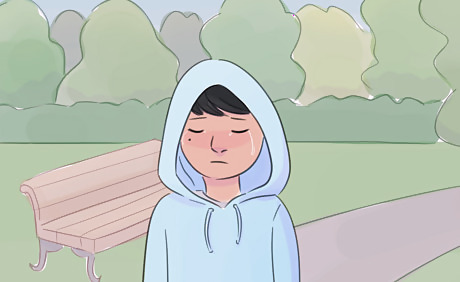
Recognize the symptoms of depression. Before you tell your parents about your depression, you may want to make sure it fits what you're going through. Do some research to learn more about depression from credible sources like the National Institute on Mental Health. Depression in adolescents and teens can manifest in different ways. You might feel indecisive, fatigued, angry, or overly sad. You might also be struggling in school – disengaged with little motivation, trouble concentrating, and remembering things. Recently, you may have pulled away from your friends and family and chosen to spend more time alone. You may have trouble sleeping or sleep too much. You might also try to numb your feelings with drugs and alcohol, or engage in other risky activities. Even if you aren’t so sure what you’re experiencing is depression, it’s best to speak up about your symptoms so you can get help.
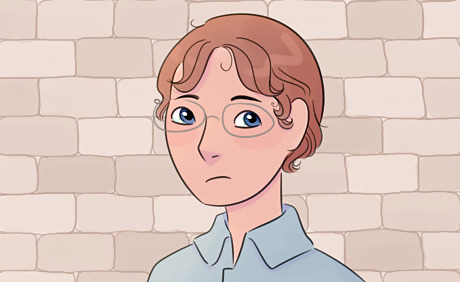
Realize that this will be a difficult conversation. Telling your parents about depression can make you very emotional. You may cry, or your parents may cry. This is perfectly okay. Depression is a difficult subject, and you are doing the right thing by addressing it now before it gets worse. Chances are, your parent(s) have already noticed something is wrong. They just don't know what it is or how to help. By naming the problem, you will help them feel better and know how to take action.

Ask someone you trust for guidance. You may worry about your parent’s reaction to your mental illness. If so, you might choose to ask a school guidance counselor, a teacher, or a coach for their advice. This can help you warm up to the idea of talking about your depression. You might say, “Ms. Anderson, I think I might be depressed. I don’t know how to tell my parents.” This trusted person might call your parents in for a meeting so that you can break the news in a safe and comfortable environment.

Decide who you want to break the news to first. Consider whether you want to talk to one parent first or both parents at the same time. Chances are you may be closer to one parent, think that one parent may react better, or even feel like one parent is part of the problem. If that’s the case, talk to the parent you feel most comfortable with first. That parent can help you tell the other parent.

Write a letter if you have a hard time finding words. Sometimes, communicating your feelings is really difficult. You may feel better about sharing the news with your parents in an indirect way like writing a note or sending a text message. Be sure you convey a serious tone, so your parents know that this is a real issue. Describe some of your symptoms, explain how they have been affecting your life, and ask to see a doctor.
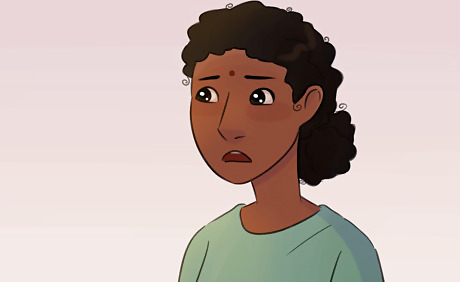
Practice what you’ll say. Discussing a tough subject like depression may be hard to do off-the-cuff. Do a practice run by sharing the news aloud in front of a mirror, or by role-playing with a close friend. This can make you feel more comfortable during the talk. Consider writing down some bullet points that you want to cover and have them with you during the conversation. This way, you’ll be able to cover everything even if you get emotional.
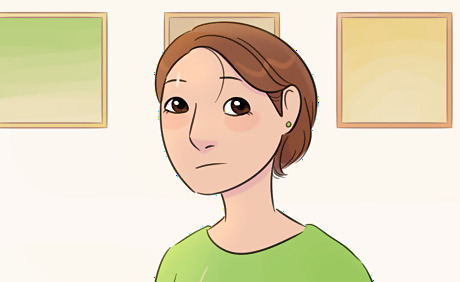
Anticipate their questions. Be prepared to explain depression and describe your feelings and symptoms. From your research, you might also share your insights about how your parents can help you. Your parents will likely have many questions. You can think about your answers beforehand, or you can simply tell them you’ll feel more comfortable talking to a mental health professional. Here are some examples of questions your parents may ask: Are you going to hurt or kill yourself? How long have you felt this way? Did something happen to make you feel this way? How can we help you feel better?Expect your parents to raise new questions as they think about what you’ve said. You may have to talk several times about your depression before they fully understand it – but these follow-up discussions should be easier than the first.
Having the Conversation

Choose a good time to have the talk. You’ll want to pick a time when neither you nor your parents are distracted. It should be a quiet time when you can talk one-on-one, or alone with both of them. Long car rides, quiet evenings, doing chores together, and long walks are all good opportunities to bring up the subject. If your parent(s) are busy, ask when is a good time. Say something like "I have something really important to talk to you about. When would be a good time for us to have a private conversation?"

Let them know that this is serious. Sometimes, parents make the mistake of not taking their children seriously about depression. You can get their full attention by letting them know that this is serious right off the bat. You might convey seriousness by saying, “I have a really big problem, and I need help," or "This is hard for me to talk about. I really need you to listen." In some cases, the opportunity to talk—and the seriousness of the issue—may present itself naturally. For instance, you might start crying and just blurt out your feelings, or you might be extremely frustrated with school and they ask you if there’s a problem.

Make "I" statements about your feelings. Using “I” statements help you communicate your feelings without making your parents defensive or putting them on guard. For instance, saying “Your fighting is making me sad” may make your parents feel like they need to defend themselves, which makes them less likely to listen. Instead, make it all about you and what you’re feeling. ”I” statements may sound like "I feel really exhausted and gloomy. It's hard to get out of bed" or "I know I've been cranky lately. I get really mad at myself, and I hate myself sometimes. I keep wishing that I could die."

Put a name to what you’re feeling. Now that they know how it is affecting you, say its name. Talk to them about any research you did, and offer to show them any articles you found helpful. Show them wikiHow articles like Deal with Depression and Know if You Have Depression if this helps. "I found some articles about depression. It sounds a lot like what I'm going through, and I think I may have it." Be firm if they minimize what you feel by calling it “having the blues” or “feeling a little down.” Tell them that you meet the clinical criteria for depression.
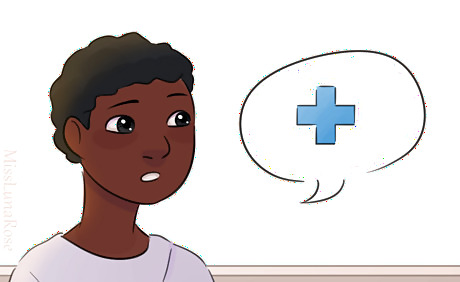
Ask for a doctor's appointment. Don’t just bring up the subject of depression and expect your parents to know how to handle it. Make sure they know you are worried about your condition and that you want to get help. You might say, “I think I need to make an appointment with Dr. Rogers for an evaluation.” A doctor can help you figure out whether you have depression for sure. Seeing your doctor is also typically the first step in getting treatment, or being referred to a mental health provider who can treat you. You might also ask your parents if there is a family history of depression or other mental health issues. This may help them see that you’re dealing with a problem with a genetic component.

Don't panic if your parent(s) react badly. There’s a chance your parents won’t respond to the news how you would like. They may react with disbelief, self-blame, anger, or fear. Keep in mind that although you have been battling with depression for a while, they are just learning about it. Give them some time to digest the news and figure out how they truly feel. If they are confused, say "It took me a long time to understand depression, too." Remember that this is not your fault. You did the right thing, and this is the best way for them to find out. If your parents don’t take your claims seriously, keep telling them (or another adult) until they take action. Depression is serious, regardless of whether your parents believe you.
Getting Their Support during Treatment

Share your feelings with them. Opening up about depression can be challenging, but you may feel better if you try to share your feelings. Gather the courage to talk to your parents about what it’s like to have depression, especially when you are feeling particularly low. Don’t feel guilty about being depressed and don’t try to protect our parents from worry and stress by holding back. Talking to them doesn’t mean you expect them to “fix” you. It just gives you an outlet for your emotions, and helps you feel less alone. Your parents would rather know that something is wrong, as opposed to wondering if something is wrong. Be honest about your feelings. This way, they can start helping you.

Make a list of actions your parents can take to help. You can help your parents help you by passing on useful information you learn about improving your depressive symptoms. You can ease depression by taking your prescribed medication, getting a good night’s rest, eating balanced meals, and getting physical activity. Tell your parent’s how they can help you with this. Make a list of ways your parents can support your treatment. For instance, they might go walking with you outdoors in the evenings, start a family game night to help you relieve stress, keep track of medication refills, or make sure you are going to bed at a decent time to be well-rested.

Ask them to accompany you to appointments, if you want. A great way to involve your parents in your treatment is by having them join you at appointments. That way, they can stay updated on the treatment process and ask any questions they may have. Driving you to doctor visits and therapy appointments also helps you feel supported during this difficult time. You might say, “I’d really like it if you came to my next appointment with me.”

See if they’d like to participate in a support group. Your doctor or therapist may have recommended that you join a local support group of other teens and young adults who are experiencing depression. These groups are great for you because they help you bond with others who are going through similar situations. However, it might also help for your parents to attend such groups, too. In these groups, your parents can learn more about how to support your depression treatment. Plus, they may also forge bonds with other parents and family members who are supporting their child’s treatment. The National Alliance on Mental Illness has peer and family support groups. Search for a NAMI chapter in your area to look for a support group you and your parents can join.

Appeal to your therapist or school counselor. If you have access to a counselor but are having problems with your parents’ support, you might ask the counselor to intervene. They might offer to meet with them one-on-one or together to discuss the severity of your situation, and other things. Sometimes, parents are more likely to respond if your concerns are validated by a mental health professional or by an official diagnosis.




















Comments
0 comment